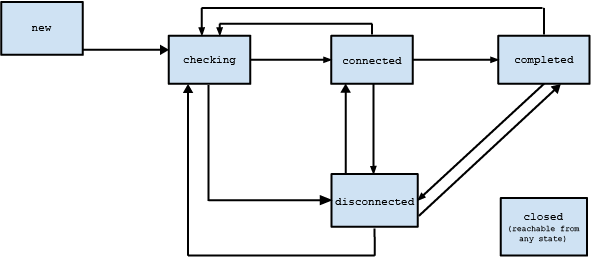Overview
Object RealTime Communications (ORTC) provides a powerful API for the development of WebRTC based applications. ORTC does not mandate a media signaling protocol or format (as the current WebRTC 1.0 does by mandating SDP Offer/Answer). Instead, ORTC focuses on "sender", "receiver" and "transport" objects, which have "capabilities" describing what they are capable of doing, as well as "parameters" which define what they are configured to do. "Tracks" and "data channels" are sent over the transports, between senders and receivers.
This specification defines several objects: RTCDtlsTransport (Section 2), RTCIceTransport (Section 3), RTCIceListener (Section 4), RTCRtpSender (Section 5), RTCRtpReceiver (Section 6), RTCDTMFTrack (Section 8), RTCDataChannel (Section 9), and RTCSctpTransport (Section 10); RTP dictionaries are described in Section 7.
In a Javascript application utilizing the ORTC API, the relationship between the application and the objects, as well as between the objects themselves is shown below:

Terminology
The EventHandler
interface represents a callback used for event handlers as defined in
[[!HTML5]].
The concepts queue a task and fires a simple event are defined in [[!HTML5]].
The terms event, event handlers and event handler event types are defined in [[!HTML5]].
The terms MediaStream, MediaStreamTrack, Constraints, and Consumer are defined in [[!GETUSERMEDIA]].
